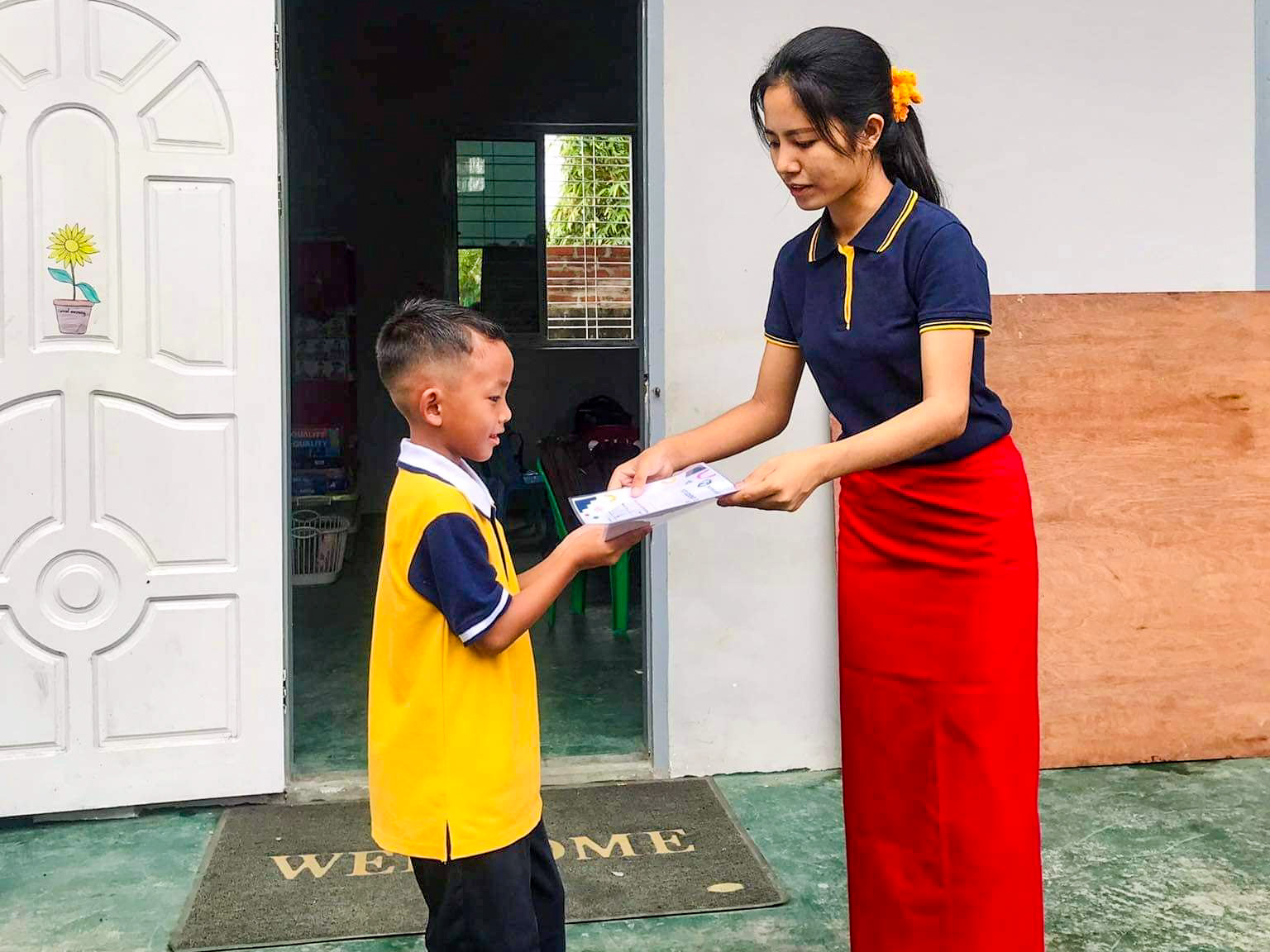
Population:
54 million
Evangelical population:
4.8%
People groups:
148
Unreached people groups:
53

Myanmar
One of the poorest nations in Southeast Asia, Myanmar has been embroiled in ethnic conflict for most of the years following its independence from Britain in 1948. It claims the unfortunate “honor” of having one of the world’s longest-running ongoing civil wars.
Bordered by Bangladesh, India, China, Laos, Thailand, the Bay of Bengal, and the Andaman Sea, the country of Myanmar contains central lowlands surrounded by rocky highlands. It is the second largest producer of opium, accounting for nearly 25 percent of the world’s opium. Opium production is used primarily for manufacturing heroin. Myanmar is also one of the world’s largest producers of methamphetamines, which have replaced opium as the drug of choice. Intravenous drug use is widespread and has led to Myanmar’s high rate of HIV/AIDS. Alcoholism is also rampant.
Myanmar’s military dictatorship, which took power in 1962, was officially dissolved in 2010, but took over the country again in 2021. Christian-majority ethnic groups have been targeted for abuse. Thousands of Christian villages have been destroyed. But despite efforts to destroy Christianity, it continues to grow. After foreign missionaries were expelled from Myanmar in 1966, native believers began evangelizing their own people. Today, Myanmar is home to many flourishing churches among ethnic minority groups.
The Burmese majority comprises 57 percent of Myanmar’s population. The rest of the population is comprised of 148 ethnic groups. Around 78 percent of the population identifies as Buddhist. The Burmese majority is very resistant to the gospel, as Buddhism is enmeshed in their cultural identity. Theravada Buddhism is the most prevalent form of Buddhism in Myanmar, with many practicing a form of Buddhism that incorporates astrology and various occult beliefs and practices. A common saying in the country is “To be Burmese is to be Buddhist.” Those who become Christians are commonly persecuted or ostracized by their Buddhist families and communities.
Despite this opposition, the formation of churches among ethnic minority groups has created a great need for Bibles and gospel materials in local languages. Indigenous ministries also request assistance to train and support missionaries serving in poverty-stricken areas, dependable vehicles to reach remote areas where unreached people groups reside, and materials for simple church buildings.
Indigenous ministries hold feeding, medical/dental, children’s and holiday outreaches where they preach the gospel. These outreaches consistently yield new believers and churches. They also drill wells, which are a highly effective way to open doors for the gospel in Burmese villages. In the experience of one ministry leader, every well drilled has produced a church plant.
One indigenous ministry requests assistance for its residential rehabilitation program for addicts, which has transformed lives and led many families to Christ. Indigenous ministries are also sheltering, caring for, and discipling orphaned or abandoned children, the elderly, and refugees.
Sources: Joshua Project, CIA World Factbook, Operation World

How to Pray for Myanmar
- Pray that witnesses for Christ would be soon established among every one of the people groups in Myanmar.
- Pray for protection and provision for indigenous missionaries who work in regions hostile to their faith; ask God to open doors for them and grant them wisdom.
- Pray that peace would reign in this country that has been so plagued by conflict.
More stories from Myanmar

Silence is Not an Option
For a moment in time—when a democratically elected president stood at Myanmar’s helm—a generation of young adults hoped life would be different than it had been for the generations that came before them. But in February 2021, when that same president was overthrown in a military coup, that dream shattered.

Deliver Bibles To The Broken-Hearted in Myanmar
Christian workers from one native ministry have delivered Bibles—often through smugglers’ routes—to refugees in at least five camps as well as to refugees living in 10 different countries. In some places, the transport was particularly dangerous as the Bibles were confiscated by soldiers; but each time, the missionaries were miraculously able to recover them.

Help Expand God’s Kingdom in Ivory Coast
A tribal priest who practiced witchcraft was a persecutor of Christians and the reason a native ministry was unable to plant a church in his village. But as missionaries led a revival in another town, his pregnant wife became ill and, after the doctor said he could not heal her, she was brought to them for help.

Share The Hope Of Christ in Myanmar
Evangelism seems impossible in the war-torn country, but missionaries persevere, traveling to villages and preaching the gospel, baptizing new believers, and fellowshipping. “As you know, the situation in our country is getting worse,” one ministry leader said. “But by the grace of God we try our best to reach our people with the gospel of Jesus Christ.”

Share The Lord’s Mercy in Myanmar
The civil war in Myanmar continues to inflict terror and tragedy, with soldiers now going door to door demanding that men ages 18 to 35 join the military. A native ministry’s building that housed more than 60 children and young people was destroyed by a bomb, and one of its churches in another village was also destroyed during fighting.

Help Vulnerable Students Receive An Education in Myanmar
An 11-year-old boy was accepted into a native ministry’s school after the director happened upon him, his younger siblings, his mother, and grandparents following their escape from their village, which had been bombed as part of the ongoing civil war.
